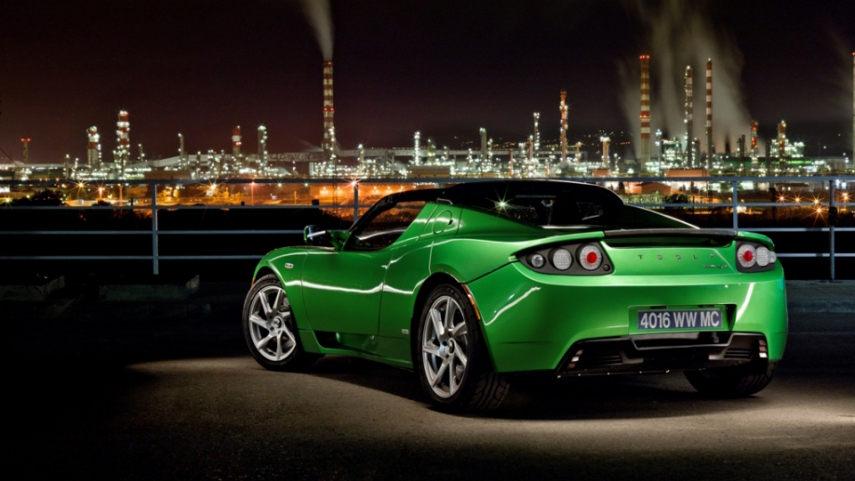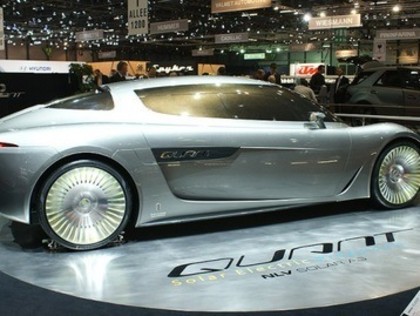New electric car charging network launches in UK
But can it kickstart a green car revolution?

Sign up for breaking news, reviews, opinion, top tech deals, and more.
You are now subscribed
Your newsletter sign-up was successful
A major new electric car charging initiative launches in the UK this week, with the arrival of a new network of charging machines in motorway service stations across the land set to boost drivers' interest in electric cars.
At least, that's what the electric car lobby hope to see happen, with the expectation that a UK-wide network of low-cost and quick, easy-to-use charging machine will help to overcome many potential electric car drivers' "range anxiety" – ie their fear that they might run out of power miles away from home (or from their nearest charging machine).
Overcoming range anxiety
"Today we launched the world's first national charging network for electric cars," writes Dale Vince, the founder of green energy company Ecotricity, in The Guardian.
"That may sound a bit grand, for something quite wonderfully simple - a series of charging posts installed at motorway services up and down the country…. For electric cars, that are easy to access and free to use.
"Enabling Britain's electric car drivers to drive the length and breadth of the country, with all the convenience of simply pulling into a motorway service station to top up."
Even though the UK has a mere 2,000 cars on the roads right now, the Ecotricity founder hopes that the new charging network should boost demand for electric vehicles amongst Brits.
Sign up for breaking news, reviews, opinion, top tech deals, and more.
"It's often said that one of the reasons more people don't buy electric cars is because of a lack of charging facilities – while the reason more charging facilities aren't built is said to be because not enough people are buying electric cars. We're hoping to break that impasse."
Vince hopes that his new charging network will help to "kickstart Britain's electric car revolution" as the focus to date has been on installing charging centres in the UK's major cities, and not across the motorway network.
"The average car in Britain travels around 20 miles a day, a distance that most modern electric cars can sustain for almost a week without needing to charge. And most car owners have access to off-street parking (70% apparently) – and therefore are able to charge at home, at night. Most cars won't need to charge, most days. It's the longer journeys where charging is needed most."
Ecotricity's charging points are also based on fully renewable wind-powered energy, offering drivers the chance of a "full zero-emission driving potential".

Electric sports cars: but will true petrolheads ever really adopt electric vehicles?
With 28 million cars on the roads of Britain, burning up around 20 million tonnes of oil each year, it's clear why electric car evangelists such as Vince are keen to drive home their message.
"We could power all of that with just 10,000 of today's wind turbines and 5,000 of tomorrow's (they double in size every few years)," claims the Ecotricity founder, adding, "the grid can easily cope, in fact if Britain switched to electric vehicles the grid would operate more efficiently."
Revenge of the Electric Car
Elsewhere, the new electric car industry documentary from director Chris Paine's Revenge of the Electric Car is set to get a widespread cinema release later this year - the follow-up to his hit, Who Killed the Electric Car?
"I'm very pleased with the reaction so far," Paine told Mother Nature Network. "You always get worried that your movie might be coming out too late, but 'Who Killed' didn't find its true audience for a year. I hope the timing is right."
Some of the characters in Paine's film include the infamous Elon Musk of Tesla Motors, Bob Lutz (previously the vice chairman of General Motors and responsible for The Chevy Volt) and Carlos Ghosn (the Nissan CEO responsible for the Nissan Leaf).
Via The Guardian and Mother Nature Network
